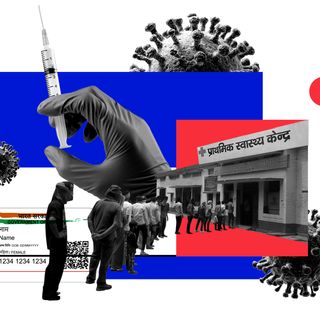Assam has become the first state in India to introduce a separate category for applicants who identify as transgender.
The Assam Public Service Commission (APSC), which recruits people for the state’s civil service, police, and other allied services, became the first Indian state commission to introduce the new category.
“The move to include transgenders in a separate category is a welcome step and Assam is the first state in India to do so…. Despite the 2014 [Supreme Court] order and a similar order from Gauhati [High Court] in 2018, we were not given a separate category. That’s why I approached APSC,” Swati Bidhan Baruah, associate vice-chairperson of the Assam State Transgender Welfare Board, told Hindustan Times.
According to the 2011 census, Assam’s transgender population was more than 11,000, but activists argue the actual number would be more than 20,000 since people don’t always come out due to family pressures or social stigma. However, the recognition and acceptance by the APSC could play a role in remedying the stigma and making society more inclusive.
Related on The Swaddle:
What India Can Learn About Trans Inclusion From the World
“Initially we had not made a separate category for transgender persons when we issued notification for the exam in September. We were soon approached by a prominent transgender activist Swati Bidhan Baruah to include a separate category,” said Pallab Bhattacharya, chairperson of APSC. Following the subsequent discussion, the APSC “checked with [the Union Public Service Commission] where transgender persons are already allowed to apply in a separate category called ‘Other.’ The state government was apprised of the matter and a separate category was created,” Bhattacharya added.
Since the new category was created after the APSC had already begun accepting applications from candidates, the deadline was extended to enable transgender applicants to submit. Out of the 75,988 applications received by the APSC, 42 applied in the transgender category. “It’s a big thing that 42 persons have applied in the new category as we know that they are a marginalized community and don’t get opportunities to pursue higher education,” Baruah noted.
However, reports suggest that transpersons in India often choose to retain the gender assigned to them at birth in their IDs because the law doesn’t accommodate a third, separate gender in property rights or the rights to marry or adopt children. Moreover, transpersons have also reported hassles like intrusive medical screening examinations, and multiple forms of identification required by authorities to ascertain whether they’re transgender.
While many transpersons identify as either man or woman, rather than identify as a third or separate gender, additional legal and procedural options, like the one by the Assam government, would certainly lead to a more inclusive civil service.
Baruah sees the recent move by Assam as a first step. “… only [adding the category] wouldn’t be of much help if special steps are not included. I have written to the Commission to secure reservation for the community and also provide special standard operating procedures so that others do not misuse this provision,” Baruah told Guwahati Plus.




